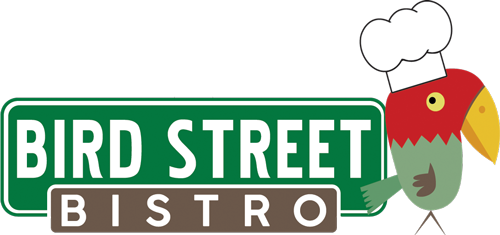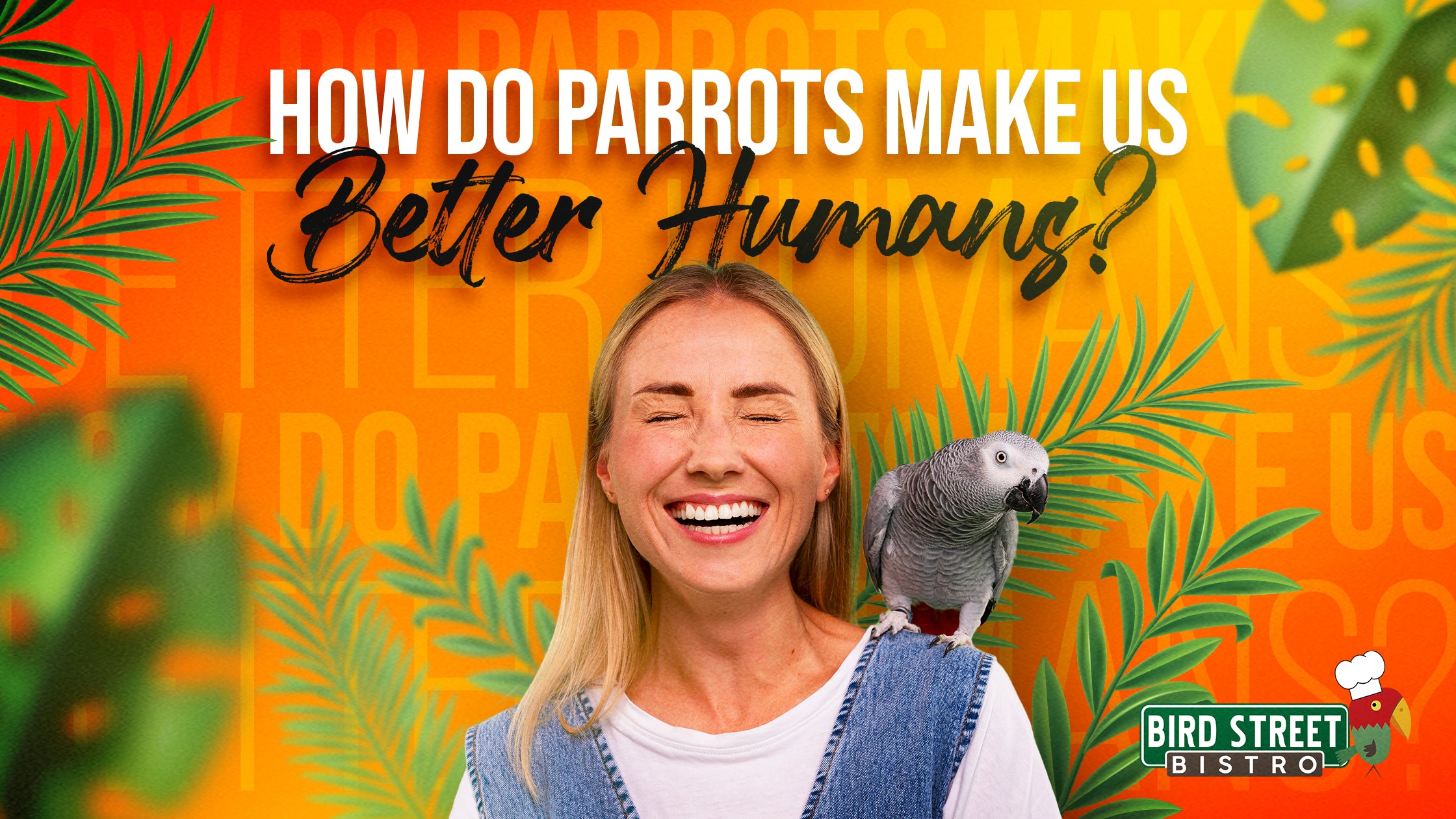How Parrots Make us Better Humans
It’s something I’ve been told and read about countless times: A person tells of how their pet has changed their life in ways they didn’t imagine. From those struggling with loneliness and depression to those feeling called to rescue an animal in need, it’s a common scenario. Unsurprisingly, I have heard many stories about parrots bettering the lives of their humans - myself being one of them. I’ve also encountered people who say helping birds has taught them a great deal about themselves and life in general. Let’s explore some of the ways these amazing winged souls have inspired and healed so many of us since they entered our homes and our hearts.
The Pet Parrot - Challenges and Rewards

Parrots aren’t easy. They are often described as one of the most challenging animals to be kept as pets. If cared for properly and provided with at least the basic requirements to keep them healthy and happy, parrots need much observation, attention, money, and patience from their owners. Some birds are easier than others, but some go beyond the average personality type or physical needs and are more demanding than most. Sadly, this is one of the reasons that parrots are frequently surrendered to shelters and rescues every day and why overcrowding in these facilities is such an issue.
Despite the challenges, lots of people manage to care for their birds well and enjoy the life they live with them. If you ask most people who have healthy birds, they would probably say that it’s easy for them to provide for their needs because they see them as family. That is a common word I have heard throughout the years studying parrots and interacting with their owners. “Family.” If you have visited forums about parrots or watched videos on social media, you’ve likely heard of the term “fids” being used by someone to describe their birds. It’s short for “feathered kids” and denotes the feeling of a bird being like a child to that person. Many others also claim that their bird gives them purpose in their lives by caring for them and sharing the bond they have developed.
The bond that grows between birds and humans can be powerful and even life-changing, despite the challenges associated with their care. So what is it about parrots that affects so many people in such a positive way?
The Intelligent, Social Parrot

When parrots first started finding their way into our homes, they were mostly seen as a status symbol and a novelty. In the early days of animal behavior research, scientists still mostly saw birds as simple creatures that were mostly automatons without much going on cognitively.
However, Irene Pepperberg, a research associate in Harvard’s Psychology Department with the help of her African Grey birds Alex and Griffin and her team of researchers has shown since she began studying parrot behavior that this isn’t the case. She said once “When I started this work in the ’70s, my first grant proposal came back literally asking me what I was smoking” Early researchers were very hesitant to entertain the idea of an intelligent bird that did more than mindlessly mimic words. An article in The Harvard Gazette tells of a study done recently by Pepperberg’s team and developmental psychologists and claims that the study “shows the African grey can perform some cognitive tasks at levels beyond that of 5-year-old humans. The results not only suggest that humans aren’t the only species capable of making complex inferences, but also point to flaws in a widely used test of animal intelligence.”
It is no surprise, then, that humans can form such a strong bond with their birds. Anyone who has spent some time with a parrot can tell you that they display many intelligent and complicated behaviors. Many owners claim that their bird seems to know when they are feeling sad or down, often seeming to comfort their owners in different ways and that they also express things like jealousy, affection, playfulness, and much more. Many people who work in shelters and rescues also claim that when a bird’s owner dies, they display clear signs of grief and loss.
The Human-Parrot Bond

In the wild, the bonds that parrots form with one another are lifelong. It is no different when it comes to humans. From the moment a person wakes up until bedtime, a well-adjusted parrot will likely want to be involved in their flockmate’s (their owners) daily activities. Our Sun Conure, Kermit, wakes us up by making kissing sounds at about 6:30 am every morning. He then flies into the bathroom to enjoy the steam from our daily shower followed by breakfast on top of his cage next to his favorite human while he eats his food. This trend carries on through the day and is similar to many other domesticated parrots. They tend to want to be involved in daily activities, not always just be present in the room. However, many times they do enjoy doing their own thing parallel to their human. Sharing activities with the people in their flock is important and leads to a healthier bird. It also mimics what they would be doing in the wild with their flockmates.
Sometimes, the bond that they form with their person is seen by the bird as a pair bond or a mate bond if certain unhealthy behaviors aren’t discouraged. This can especially be true if they are the only bird in a house. This isn’t healthy for a parrot and can lead to behavioral and even medical issues, but there are ways to nurture a healthier bond with less confusion for the bird. Training is an extremely beneficial activity for this as well as using positive reinforcement to encourage healthy bonding activities. A bird that sees their human as a mate can get depressed, have hormonal issues, pluck, or even have reproductive health issues that require medical attention. It goes to show that parrots need to feel a connection to their flockmates and that connection can be extremely powerful.
But the bond isn’t just powerful for the bird. Many humans who have purchased or adopted a parrot have claimed that doing so has had a positive impact on them. Some even claim that if not for the bird and the bond they share, they feel they wouldn’t feel a sense of purpose in their lives. I have often seen parrot owners talking about their birds in ways that might surprise those who have never had one. Many people are saying that the bond they have developed with them has enriched their lives greatly. Those who have rescued a parrot and been able to see their progress as they adjust to their home have shared the rewarding feeling of nurturing them back to health or happiness. Those who bought a bird from a breeder or store and have been able to see them grow and develop their personality from a baby bird have shared their amazement at how seeing such an intelligent animal develop in front of them has touched them in ways they didn’t imagine. Some people share their daily adventures with their birds where they take them on errands and recreational activities. Seeing the excitement in the birds and getting to share their lives with them is often described as providing purpose and a sense of family.
It is important to understand, however, that the benefits of owning a parrot rely largely on responsible ownership and that person is a good fit for the bird. As mentioned previously, parrots are not easy or cheap companions and can even cause a person more challenges in their life if they are not prepared to or able to properly care for them and devote the time and attention needed. So, it seems the benefits are a symptom of a healthy bird and bond with their person and not a guarantee.
- Choosing a selection results in a full page refresh.
- Press the space key then arrow keys to make a selection.


